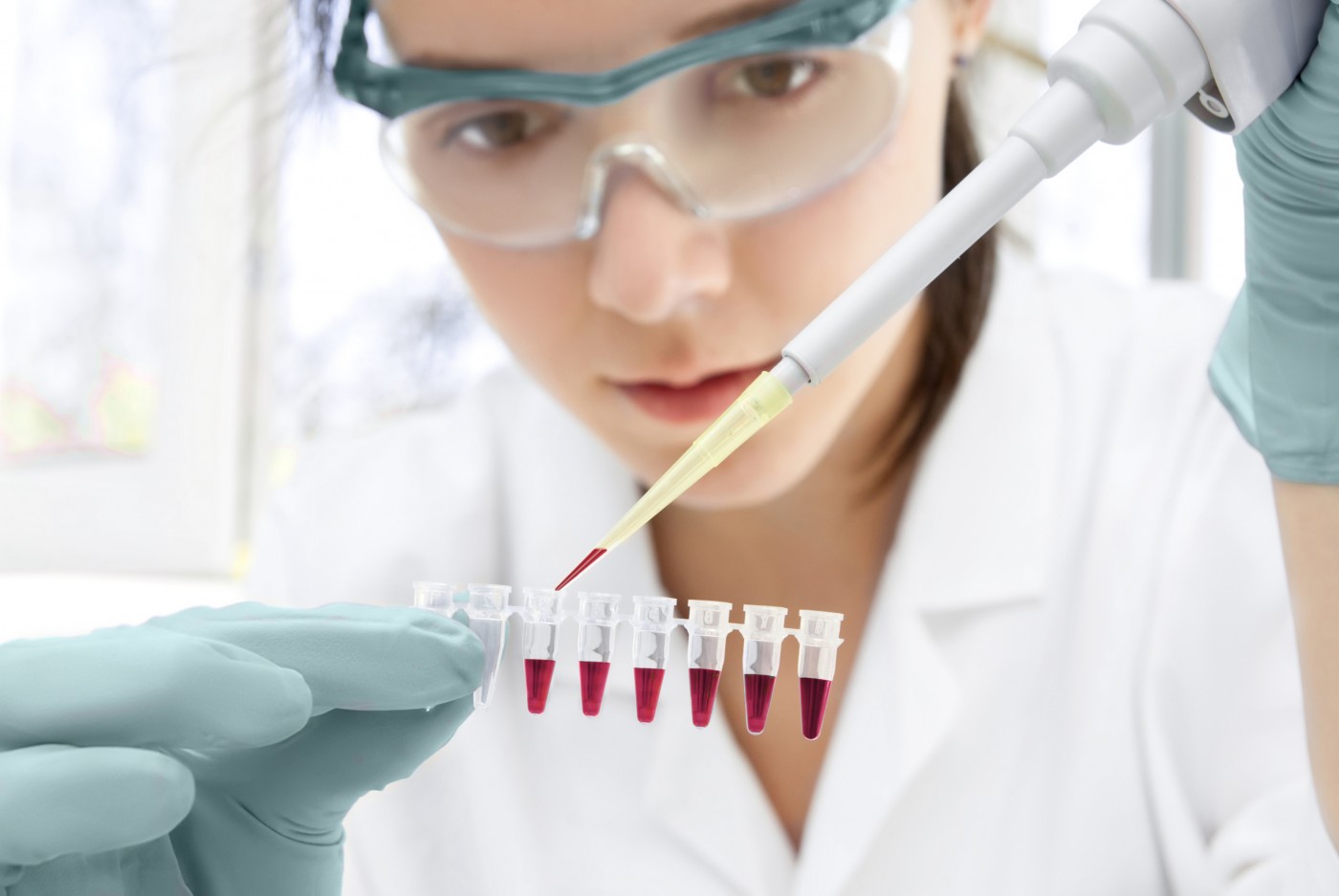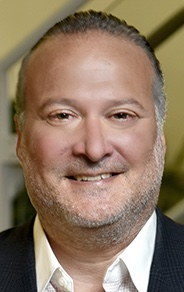FightSMA Updates SMA Clinical Trials Status May 2016
Written by |

 FightSMA, an Richmond, Virginia, based all-volunteer, parent-led nonprofit, has released an update on the status of clinical trials it is currently supporting. Founded in 1991 by Joe and Martha Slay after their son Andrew was diagnosed with SMA (spinal muscular atrophy), with a mission to “strategically accelerate” research to treat or cure SMA — the number-one genetic cause of infant death — FIghtSMA is one of the leading organizations targeting SMA, and over the years has funded SMA research at more than 50 universities and research institutions in five countries.
FightSMA, an Richmond, Virginia, based all-volunteer, parent-led nonprofit, has released an update on the status of clinical trials it is currently supporting. Founded in 1991 by Joe and Martha Slay after their son Andrew was diagnosed with SMA (spinal muscular atrophy), with a mission to “strategically accelerate” research to treat or cure SMA — the number-one genetic cause of infant death — FIghtSMA is one of the leading organizations targeting SMA, and over the years has funded SMA research at more than 50 universities and research institutions in five countries.
Spinal muscular atrophy is caused by a missing or defective survival of motor neuron 1 (SMN1) gene, which results in reduced levels of SMN protein. The homologous SMN2 gene is predominantly spliced to a truncated mRNA, and only produces small amounts of functional SMN protein. Insufficient levels of SMN protein are responsible for the loss of motor neurons within the spinal cord leading to muscle atrophy and death in its most severe form. It is estimated that this devastating disease affects 1 in every 11,000 children born, and currently few treatment options exist for these patients, resulting in a high unmet need for new therapeutic options to address symptoms and modify disease progression.
However, after nearly 25 years of being active in the SMA landscape, engaging leading scientists and policymakers to create treatments and a cure for SMA, FightSMA says it is more optimistic than ever, having been chosen by the National Institutes of Health (NiH) as a model for translational research because SMA is the closest to a treatment or cure of all known neurological disorders.
Research in SMA also creates invaluable scientific insight for other neurological diseases, such as ALS, Alzheimer’s, Parkinson’s, the muscular dystrophies, some forms of cancer and even spinal cord injury.
A 501c3 tax-exempt nonprofit organization, FightSMA, Inc. relies solely on charitable contributions to fund its research and advocacy programs — fueled by the generosity of individuals from around the globe, through donations made to the organization and fundraiser events. FightSMA also receives funding through annual corporate sponsorships and grant partnerships with other supportive groups, but does not receive any state or federal funding.
In 2005 the organization began holding its Annual Research Conference in Washington, DC, the only SMA conference of its kind created specifically for researchers. The unique forum promotes dialogue, debate and collaboration between expert scientists from across the globe to accelerate research towards effective treatments for SMA.
 A status report on SMA clinical trials supported by FIghtSMA as of May 2016, prepared by FightSMA Scientific Director Dr. Chris Lorson of the University of Missouri, includes:
A status report on SMA clinical trials supported by FIghtSMA as of May 2016, prepared by FightSMA Scientific Director Dr. Chris Lorson of the University of Missouri, includes:
1) Repligen/Pfizer RG3039:
– Currently there are no active clinical trials in progress, and the partnership for further development between Repligen and Pfizer has been terminated.
2) Roche (formerly Trophos) Olesoxime:
Corson notes that unlike many of the drugs in clinical trial for SMA, Olesoxime an– orally bioavailable compound — is not intended to increase SMN levels, and belongs to a class of compounds referred to as neuroprotectants. Roche will now direct production and future development of the compound for subsequent clinical trials.
3) Novartis LMI070:
– This small molecule being developed by Novartis is designed to correct the SMN2 alternative splicing event, thereby increasing full-length SMN. An open-label, multi-part, first-in-human study of oral LMI070 in of approximately 22 infant patients with Type 1 SMA is underway for the purpose of evaluating the drug’s safety, tolerability, pharmacokinetics (PK), pharmacodynamics (PD) and efficacy after 13 weeks; and to estimate the Maximum Tolerated Dose (MTD) and optimal dosing regimen of orally administered LMI070 in patients with Type 1 SMA. The Phase I trial will be an open-label first-in-human study of orally bioavailable LMI070 in Type 1 SMA patients
4a) Roche/PTC/SMAF: RG7800
– This drug is an orally bioavailable small molecule that is designed to correct the SMN2 alternative splicing event, thereby increasing full-length SMN. A 12-week, multi-center, randomized, double-blind, placebo-controlled Phase 1b/2a randomized, double-blind, placebo-controlled trial called Moonfish in adult and pediatric patients with SMA enrolling approximately 48 patients has been initiated to assess the safety and tolerability of RO6885247. The trial was suspended in April due to an unexpected eye finding during an animal study evaluating the long term safety of the compound. However, at this point, internal and independent reviews found that no safety issues in any of the patients who were dosed with RG7800 in the trial and subsequently followed up for two months after completing treatment. The trial remains on hold as of April, 2016.
4b) Roche/PTC/SMAF: RG7916:
– Similar to RG7800, another SMN2 splicing modifying drug is under development that is an orally bioavailable small molecule. A Phase 1 study in healthy volunteers has been initiated to investigate the safety, tolerability, and the pharmacokinetics/pharmacodynamics of RG7916. The study will assess what the body does to RG7916 given by mouth in gradually increasing doses, and what RG7916 does to the body. Data from this study will help to define the dose to further explore RG7916 in patients with SMA.
 In a release, South Plainfield, based biopharmaceutical company PTC Therapeutics, Inc. announced that the company’s joint development program with Roche and the SMA Foundation for RG7916 is designed to shift SMN2 pre-mRNA splicing toward the production of full length SMN mRNA.
In a release, South Plainfield, based biopharmaceutical company PTC Therapeutics, Inc. announced that the company’s joint development program with Roche and the SMA Foundation for RG7916 is designed to shift SMN2 pre-mRNA splicing toward the production of full length SMN mRNA.
 “We are pleased to initiate clinical development of a second candidate in our SMA collaboration,” comments Stuart W. Peltz, Ph.D., Chief Executive Officer, PTC Therapeutics, Inc. “The goal of this Phase 1 study is to understand more about the safety and activity of RG7916 and be in a position to compare the profiles of each of our development compounds to determine the best path forward for our SMA program. SMA is the most common genetic cause of infant mortality and one of the most common rare diseases. Currently there are no available therapies to treat the underlying cause of the disease. PTC and our collaboration partners are committed to advancing potential solutions for SMA patients through our SMN2 alternative splicing program.
“We are pleased to initiate clinical development of a second candidate in our SMA collaboration,” comments Stuart W. Peltz, Ph.D., Chief Executive Officer, PTC Therapeutics, Inc. “The goal of this Phase 1 study is to understand more about the safety and activity of RG7916 and be in a position to compare the profiles of each of our development compounds to determine the best path forward for our SMA program. SMA is the most common genetic cause of infant mortality and one of the most common rare diseases. Currently there are no available therapies to treat the underlying cause of the disease. PTC and our collaboration partners are committed to advancing potential solutions for SMA patients through our SMN2 alternative splicing program.
The SMA program was initially developed by PTC Therapeutics in partnership with the SMA Foundation in 2006 to accelerate the development of a treatment for SMA. In November 2011, Roche gained an exclusive worldwide license to the PTC/SMA Foundation SMN2 alternative splicing program. Development of RG7800 and RG7916 is being executed by Roche and overseen by a joint steering committee with members from PTC, Roche, and the SMA Foundation.
5) Cytokinetics/Astellas CK-2127107:
San Francisco, California based a late-stage biopharmaceutical company Cytokinetics, Inc. in collaboration with Tokyo based Astellas Pharma Inc., is developing CK-2127107 as a potential treatment for people living with SMA and certain other debilitating neuromuscular and non-neuromuscular diseases and conditions associated with skeletal muscle weakness and/or fatigue. This compound is designed to improve function of skeletal muscle in SMA patients as a novel skeletal muscle troponin activator and is not intended to elevate SMN levels. Previously, CK-107 has been examined in five completed Phase 1 clinical trials in healthy volunteers, demonstrating safety, tolerability, bioavailability, pharmacokinetics, and pharmacodynamics.
CK-2127107, a novel skeletal muscle activator arising from Cytokinetics’ skeletal muscle contractility program, slows the rate of calcium release from the regulatory troponin complex of fast skeletal muscle fibers, which sensitizes the sarcomere to calcium, leading to an increase in skeletal muscle contractility. CK-2127107 has demonstrated pharmacological activity that may lead to new therapeutic options for diseases associated with muscle weakness and fatigue. In non-clinical models of SMA, a skeletal muscle activator has demonstrated increases in skeletal submaximal muscle force in response to neuronal input and delays in the onset and reductions in the degree of muscle fatigue. The company notes that CK-2127107 has been the subject of five completed Phase 1 clinical trials in healthy volunteers, which evaluated safety, tolerability, bioavailability, pharmacokinetics and pharmacodynamics.
A Phase II double-bind, randomized, placebol-controlled clinical trial designed to investigate the pharmacodynamics of a suspension formulation of CK-2127107 following multiple oral doses in SMA patients is currently underway for SMA patients, the primary objective of which is to demonstrate a pharmacodynamic effect of CK-2127107 on measures of skeletal muscle function or fatiguability in patients with spinal muscular atrophy Types II-IV. The trial will consist of approximately 72 patients in two sequential, ascending dose cohorts of 36 patients each who are 12 years of age and older, half ambulatory and half non-ambulatory. Each cohort will be stratified by ambulatory versus non-ambulatory status to receive CK-2127107 dosed twice daily for 8 weeks.
The first cohort of patients will receive 150 mg of CK-2127107 dosed twice daily for eight weeks; the second cohort of patients will receive 450 mg of CK-2127107 dosed twice daily or a lower dose, depending on the data from the first cohort. At the conclusion of the trial, approximately 24 patients will have been randomized to placebo, approximately 24 patients to 150 mg of CK-2127107 twice daily and approximately 24 patients to 450 mg of CK-2127107 twice daily (or a lower dose, pending the review of data from the first cohort). Multiple assessments of skeletal muscle function and fatiguability will be performed including respiratory assessments, upper limb strength and functionality for non-ambulatory patients, as well as six-minute walk and timed-up-and-go for ambulatory patients.
 “Initiating this first Phase 2 trial of CK-2127107 represents a major step forward given our interests to serve the many adolescents and adults who are living with SMA, a disorder with few treatment options”, says Robert I. Blum, Cytokinetics President and Chief Executive Officer, in a release. “We look forward to working closely with the investigators and clinical trial sites to evaluate the effects of our next-generation skeletal muscle activator, which we believe holds promise for the potential treatment of patients battling this devastating disease.”
“Initiating this first Phase 2 trial of CK-2127107 represents a major step forward given our interests to serve the many adolescents and adults who are living with SMA, a disorder with few treatment options”, says Robert I. Blum, Cytokinetics President and Chief Executive Officer, in a release. “We look forward to working closely with the investigators and clinical trial sites to evaluate the effects of our next-generation skeletal muscle activator, which we believe holds promise for the potential treatment of patients battling this devastating disease.”
6) AveXis charisma:
 – Chicago based clinical-stage gene therapy company AveXis, Inc. reports encouraging interim data for their lead program for AVXS-101 in spinal muscular atrophy (SMA) Type 1. Sean Nolan, President and Chief Executive Officer of AveXis notes: “With an experienced team and a solid financial foundation in place, we are in a strong position to execute on our plan to bring AVXS-101 to patients suffering from SMA”. AVXS-101, is a gene therapy product designed to deliver full-length SMN. The vector is derived from an Adeno-associated virus (AAV) serotype 9 vector and is delivered through an intravenous injection. SMN will be expressed throughout
– Chicago based clinical-stage gene therapy company AveXis, Inc. reports encouraging interim data for their lead program for AVXS-101 in spinal muscular atrophy (SMA) Type 1. Sean Nolan, President and Chief Executive Officer of AveXis notes: “With an experienced team and a solid financial foundation in place, we are in a strong position to execute on our plan to bring AVXS-101 to patients suffering from SMA”. AVXS-101, is a gene therapy product designed to deliver full-length SMN. The vector is derived from an Adeno-associated virus (AAV) serotype 9 vector and is delivered through an intravenous injection. SMN will be expressed throughout  the body from the vector. An open-label Phase 1/2 trial is underway in which a dose-escalation in being performed. Dr. Jerry Mendell leads the clinical team at Nationwide Children’s Hospital (NCH) in Columbus, Ohio. Moving forward, AveXis plans to pursue an FDA approval that would allow an intrathecal delivery.
the body from the vector. An open-label Phase 1/2 trial is underway in which a dose-escalation in being performed. Dr. Jerry Mendell leads the clinical team at Nationwide Children’s Hospital (NCH) in Columbus, Ohio. Moving forward, AveXis plans to pursue an FDA approval that would allow an intrathecal delivery.
In January, AveXis reported interim data from the ongoing trial through the December 31, 2015 time period indicating that AVXS-101 appears to have a favorable safety profile and appears to be generally well tolerated in patients studied. As of that date, there had been a total of 10 serious adverse events (SAEs) reported; two of which were determined to be related to therapy and involved clinically asymptomatic, elevated liver function enzymes. Both cases have resolved.
Early in 2016, enrollment for a Phase 1 Trial of AVXS-101 for SMA Type 1 was completed with a total of 15 patients enrolled. The purpose of this trial is to evaluate safety and efficacy of intravenous delivery of self-complementary scAAV9.CB.SMN as a treatment of SMA type 1 (SMN1). Enrollment criteria included clinical symptoms with diagnosis of SMA Type 1 before 6 months of age, with gene mutation analysis with bi-allelic SMN1 mutations (deletion or point mutations) and two copies of the SMN2 backup gene, as determined by genetic testing. The trial includes two dosing cohorts: Cohort 1 of three patients dosed at the low dose of 6.7 X1013 vg/kg, aged six to seven months at time of dosing; Cohort 2 of 12 patients dosed at the proposed therapeutic dose of 2.0 X1014 vg/kg, aged one to eight months at time of dosing.
In April, 2016 the company provided an interim update (for the data analyzed from 12/31/2015) and indicated that the trial had not observed a single event as defined by death or 16 hrs/daily of ventilation. Additionally, average increases in muscle function scores were improved in both study groups (low and high doses). Additional data will be discussed early in May, 2016.
AveXis, Inc. will Initiate pivotal trials of AVXS-101 in patients with SMA Type 1 in the United States and Europe in the first half of 2017.
7) Isis/Biogen Nusinersen (formerly ISIS-SMNRx):
– Carlsbad, California based Ionis Pharmaceuticals, Inc. last month provided an update on its ongoing open-label Phase 2 clinical study of Nusinersen in infants with spinal muscular atrophy (SMA) at the American Academy of Neurology (AAN) meeting in Vancouver, BC.
Nusinersen, also referred to as IONIS-SMNRx, is designed to alter the splicing of SMN2, a gene that is closely related to SMN1, to increase production of fully functional SMN protein. The United States Food and Drug Administration granted orphan drug status and fast track designation to nusinersen for the treatment of patients with SMA. The European regulatory agency granted orphan drug designation to nusinersen for the treatment of patients with SMA. Ionis is currently collaborating with Biogen to develop and potentially commercialize the investigational compound, nusinersen, for the treatment of SMA.
This drug is an antisense oligonucleotide, or a short synthetic stretch of nucleic acid, that is designed to specifically bind SMN2 transcripts and correct SMN2 gene expression. In 2014, two Phase 3 trials were started, CHERISH and ENDEAR. The CHERISH trial is a randomized double-blind study to investigate efficacy and safety in children with later-onset SMA (ages 2-12). The trial will run approximately 15 months and will include ~120 patients.
The April update reported that there have been no new events, as defined by progression to permanent ventilation or death, in the study since December 2014 with continued increases in event-free survival, muscle function scores as well as achievement of new developmental milestones. Data showing increases in neuromuscular electrophysiology measurements were also reported. The latest analysis also demonstrates that no nusinersen-related safety or tolerability concerns have been identified. Including the nusinersen data, Ionis and its collaborators presented more than 12 oral talks and posters on Ionis’ neurological disease programs at the AAN meeting.
 “The totality of these data in infants with SMA is encouraging, including the observed trends toward increases in muscle function as measured by CHOP INTEND and Hammersmith Infant Neurological Exam Motor Milestones. Nusinersen is the first drug in the clinic to target the underlying genetic cause of SMA and offers the promise of hope for this devastating disease,” said Richard Finkel, M.D. , chief, division of neurology, department of pediatrics, Nemours Children’s Hospital in Philadelphia. “SMA is the most common fatal genetic disease of infancy and treatment for these infants is limited to supportive care. Infants with Type I SMA have the most severe form of the disease; they almost never achieve important development milestones such as independent sitting. They never walk and usually succumb to early death due to progressive weakness of the muscles responsible for breathing and feeding.”
“The totality of these data in infants with SMA is encouraging, including the observed trends toward increases in muscle function as measured by CHOP INTEND and Hammersmith Infant Neurological Exam Motor Milestones. Nusinersen is the first drug in the clinic to target the underlying genetic cause of SMA and offers the promise of hope for this devastating disease,” said Richard Finkel, M.D. , chief, division of neurology, department of pediatrics, Nemours Children’s Hospital in Philadelphia. “SMA is the most common fatal genetic disease of infancy and treatment for these infants is limited to supportive care. Infants with Type I SMA have the most severe form of the disease; they almost never achieve important development milestones such as independent sitting. They never walk and usually succumb to early death due to progressive weakness of the muscles responsible for breathing and feeding.”
Changes in muscle function and the Hammersmith Functional Motor Scale will be used to assess efficacy. Nusinersen is delivered through an intrathecal injection. The ENDEAR study is focused upon infants with SMA and is a double-blind randomized controlled study to assess the efficacy and safety of Nusinersen in infantile-onset SMA patients. Patients up to 210 days of age are eligible. The trial will run for 13 months and will enroll approximately 110 patients. As of April, 2016 enrollment in CHERISH is complete and ENDEAR is nearly complete.
Biogen is also running two other clinical trials, NURTURE and EMBRACE.
NURTURE is a Phase 2 study designed to examine Nusinersen’s efficacy in pre-symptomatic SMA infants. The primary objective of the NURTURE study is to examine the efficacy of multiple doses of ISIS SMNRx (ISIS 396443) administered intrathecally in preventing or delaying the need for respiratory intervention or death in infants with genetically diagnosed and pre-symptomatic spinal muscular atrophy (SMA). Secondary objectives of this study are to examine the effects of ISIS SMNRx (ISIS 396443) in infants with genetically diagnosed and pre-symptomatic SMA. Patients will be genetically confirmed to have SMA, however, clinical manifestations will not be present. Pre-clinical animal models have suggested that early intervention results in the greatest degree of efficacy. The trial will enroll approximately 25 patients and will last ~2.5 years.
The EMBRACE trial is a Phase 2 study of infantile-onset or childhood-onset SMA patients who do not meet the criteria for the ENDEAR or CHERISH trials. This is a relatively small trial of ~20 patients. Like the CHERISH and ENDEAR studies, this is a double-blind, randomized trial designed to examine efficacy of Nusinersen. EBRACE is fully enrolled while NURTURE continues to seek enrollment.
 “We remain very encouraged with the performance of nusinersen. We and Biogen are committed to advancing nusinersen as rapidly as possible. Together we are actively preparing for potential filing and commercial launch of nusinersen. We have completed enrollment in CHERISH, the Phase 3 study in children with SMA and are nearing completion of enrollment in ENDEAR, the Phase 3 study in infants with SMA. This progress places us on track to have data from both of these controlled, Phase 3 studies in the first half of 2017,” says B. Lynne Parshall, chief operating officer at Ionis Pharmaceuticals, in a release.
“We remain very encouraged with the performance of nusinersen. We and Biogen are committed to advancing nusinersen as rapidly as possible. Together we are actively preparing for potential filing and commercial launch of nusinersen. We have completed enrollment in CHERISH, the Phase 3 study in children with SMA and are nearing completion of enrollment in ENDEAR, the Phase 3 study in infants with SMA. This progress places us on track to have data from both of these controlled, Phase 3 studies in the first half of 2017,” says B. Lynne Parshall, chief operating officer at Ionis Pharmaceuticals, in a release.
As of January 26, 2016, the median time in study was 22 months. The lumbar puncture procedure in infants with SMA has been well tolerated and shown to be feasible. There have been no drug-related serious adverse events (SAEs) and the majority of SAEs were related to respiratory infections. Most of the adverse events (non-SAEs) have been mild or moderate in severity. There have been no changes in the safety profile with repeated doses of nusinersen.
 “In the last several years, we have built our neurological disease franchise to encompass more than 25 programs, including two drugs in Phase 3 clinical development, three drugs in Phase 2 clinical development and multiple programs in research and preclinical development. Contributing to the speed of this progress is the expertise and resources that our partners have brought to these programs, says C. Frank Bennett, Ph.D., senior vice president of research at Ionis Pharmaceuticals. “The progress we have made in this franchise reflects the productivity of our technology and highlights the unique advantage of our antisense drugs to distribute broadly throughout the CNS and to target neurological diseases that have been largely untreatable in the past.”
“In the last several years, we have built our neurological disease franchise to encompass more than 25 programs, including two drugs in Phase 3 clinical development, three drugs in Phase 2 clinical development and multiple programs in research and preclinical development. Contributing to the speed of this progress is the expertise and resources that our partners have brought to these programs, says C. Frank Bennett, Ph.D., senior vice president of research at Ionis Pharmaceuticals. “The progress we have made in this franchise reflects the productivity of our technology and highlights the unique advantage of our antisense drugs to distribute broadly throughout the CNS and to target neurological diseases that have been largely untreatable in the past.”
Ionis acknowledges support from the following organizations for nusinersen: Muscular Dystrophy Association, SMA Foundation, Cure SMA and intellectual property licensed from Cold Spring Harbor Laboratory and the University of Massachusetts Medical School.
Sources:
FightSMA
PTC Therapeutics, Inc.
Cytokinetics, Inc.
AveXis, Inc.
Ionis Pharmaceuticals, Inc.
Biogen



